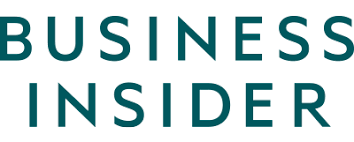How Microsoft CEO Satya Nadella changed the company culture - Business Insider
Companies, agencies, institutions, etc
Innovation Inc
Google
Microsoft
Microsoft's third
Stanford's
AP
Business Insider
company's
Nokia
Xbox One
General Electric
hadn't
Microsoft Research
the National Academy of Medicine
Courier
iPad
Linux
Salesforce
iPhone
Amazon Web Services
Google Cloud
AWS
Pentagon
Trump
Talent Connect
Immigration and Customs Enforcement
Xbox Adaptive Controller
Indiana University
Twitter @ashannstew
Signal
People
It's
Satya Nadella
Manu Cornet
Carol Dweck
challenge!'"Dweck
Bill Gates
Paul Allen
Steve Ballmer
Jack Welch
Kathleen Hogan
Peter Lee
Nadella
companies."Taking
Marc Benioff
Kevin Oakes
Neal
hadn't
Ben Tamblyn
Mary Murphy
Shana Lebowitz
Ashley Stewart
Groups
Microsoft's
others&apos
Physical locations
the Pacific Ocean
Azure
Places
No matching tags
Locations
CEO."As
they've
engineer's
people's
Microsoft's
US
Tamblyn
firm.)Microsoft's
Events
Super Bowl
Summary
"When I was named Microsoft's third CEO in February 2014, I told employees that renewing our company's culture would be my highest priority."Since becoming CEO, Nadella has been credited with a grand reinvention of Microsoft, exemplified by its market value exceeding $1 trillion, one of just a handful in history to hit that mark. The company has shifted from a has-been to a cloud powerhouse.One of the keys to this transformation is a psychological concept that's become a mantra at Nadella's Microsoft: growth mindset.Growth mindset describes the belief that skills are developed through hard work and that challenges are opportunities to learn. The personal computer market was shrinking, leading to declines in Microsoft's flagship Windows operating system business, and the Xbox One console's poorly received launch made it a punchline.Microsoft's history as a tech-industry pioneer wouldn't help the company compete, Nadella wrote in an email to employees on his first day as CEO. Employees are now evaluated partly on how much they've helped others on their team.With any company culture shift, executives run the risk of promoting jargon more than action, and of HR representatives being the only ones who know there's a culture change underway.Microsoft has tried to avoid that fate, not only by training its employees on the psychology of growth mindset, but also by embedding the concept into its daily work flow. That's a combination of setting a positive example for employees, helping the team adapt and learn, and investing in people's professional growth.To measure the impact of these initiatives in real time, Microsoft emails employees with a different question every day asking how they're feeling about the company and its culture.The shift from competition to collaboration might seem like it would be a breath of fresh air. Nadella asked Peter Lee, one of the company's top researchers, to make a big change.It was 2017 and Lee – now corporate vice president of Microsoft healthcare – had long worked on broader technology problems as a key leader in Microsoft Research, the company's research division. Ballmer, meanwhile, famously snatched an employee's iPhone at a company meeting and pretended to stomp on it.Which is not to say Microsoft always plays nice in the Nadella era. The beginning of Microsoft's culture shift was rocky.In "Hit Refresh," Nadella recalls a Microsoft manager who announced in the early days, "Hey, Satya, I know these five people who don't have a growth mindset." Nadella writes, "The guy was just using growth mindset to find a new way to complain about others. Much like the larger technology industry, Microsoft still employs relatively few women and people of color in leadership and technical roles.One of Nadella's biggest gaffes as CEO happened early on in his tenure, when he suggested women should not ask for raises, but rely on "faith" and "karma." After these comments, Nadella sent out an internal memo admitting to his mistake, explaining how he planned to learn from it, and stating his belief in "equal pay for equal work." Nadella writes in "Hit Refresh" that in some ways he's glad to have belly-flopped in public. "It helped me confront an unconscious bias I didn't know I had," Nadella writes, "and it helped me find a new sense of empathy for the great women in my life and at my company." Kevin Oakes, who runs a human-resources research company that helped Microsoft with its shift toward growth mindset, sees Nadella as an exemplar of a leader during a transition.
As said here by Ashley Stewart, Shana Lebowitz